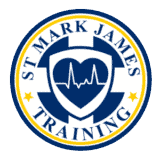Pediatric Specialty
Managing children is difficult. In medical terms, this specialty is called pediatrics. You will find pediatric specialities in a variety of medical careers – from physicians to nurses – and even to certain medical skills. Cardiopulmonary resuscitation is one of those skills that have to be modified to be performed in children. Hence the creation of the Pediatric Advanced Life Support guidelines.
What is PALS?
PALS stands for Pediatric Advanced Life Support, an advanced program for health care providers that will teach them how to give CPR to infants, toddlers, and younger children. Vancouver First Aid’s PALS training course runs for 14 hours, completed over two days. Like the advanced CPR program for adult management, the basics of PALS is still focused on Basic Life Support, with the addition of management skills that an only be performed in a medical set up.
Because child has a more immature and generally weaker body, the normal compression force and depth used on an adult can cause rib fractures and damage to the child’s internal organs. Modifications have to be made on how these lifesaving skills are performed.
Modified CPR for Children
Pediatric CPR is divided into CPR for infants, CPR for toddlers and smaller/younger children, and CPR for older children.
Infant CPR
- Performed with two fingers – either with both thumbs with hands around the chest or the pointer and middle fingers of one hand
- The general rule – compressions should be a third of the anterior-posterior diameter, which is roughly an inch in infant.
Toddler CPR
- Performed with one hand, heel is used to compress the chest.
- Compression depth is 1.5 inches (same general rule applies)
CPR for older children
- Same as an adult, with a little less force (adjusted to the size and age of the child)
Some of the basic stay the same, however, such as a cycle consisting of 30 compressions and 2 rescue breaths. Defibrillation can only be used if the patient is having a severe arrythmia (e.g. ventricular tachycardia). The amount of energy/electricity used on a child is significantly less than the amount used on an adult.
PALS Training Credentials
PALS certificates expire after three years. Students are advised to renew their credentials before the expiration date through a refresher course. PALS refresher courses are update classes for health care providers.
Our curriculum is closely monitored by Vancouver’s local government, which is why our credentials are valid all over the province and the rest of Canada. If you need certification for PALS, sign up for training at Vancouver First Aid is as easy as using the form below.
Office hours are from 8 AM to 5 PM, you can sign up for PALS training in person during those hours. You get your slot immediately confirmed if you enroll in person, a day later if you enroll online.
You can send an e-mail or give us call during office hours if you have any questions regarding Pediatric Advanced Life Support training. Our staff has been trained to assist prospective trainees with whatever they need.
